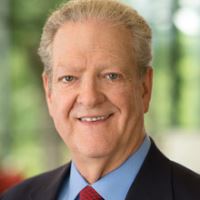Commentary on Psalm 92:1-4, 12-15
Psalm 92 is the only psalm with a superscription assigning it to the Sabbath.
As such, it became important in the Sabbath temple liturgy. Other psalms have been designated for use on the other six days of the week, but not in the Hebrew Bible: Psalms 82, Tuesday; and 81, Thursday, in rabbinic sources and 24, Sunday; 48, Monday; 94, Wednesday; and 93, Friday, also in the Septuagint.
Several factors may have contributed to this unique designation. Chief among these would be a series of sevenfold repetitions which may point to the “seventh” day of creation, including the divine name YHWH (“LORD” in New Revised Standard Version); seven negative qualities of the wicked in verses 7–11; seven positive qualities of the righteous in verses 12–15; and seven verses preceding and following the poetic hinge in verse 8. In addition, God’s creative activity may be hinted at in “the work of your hands” (verse 4; cf. Psalm 8:3) and “works” (verse 5; cf. Psalm 104:24, 31).
Of greater significance for our work, however, is the shaping of the psalm as a canonical entity rather than its superscription or the abridgment suggested by the lectionary. Canonically speaking, Psalm 92 seems to combine several genres found in the Psalms, especially thanksgivings and hymns with didactic elements of the wisdom traditions thrown in for good measure. The psalm as a whole displays the following concentric structure:
A Declaration of YHWH’s steadfast love (1–3)
B YHWH causes me to rejoice (4–5)
C The wicked are doomed (6–7)
X Declaration of YHWH’s exaltation (8)
C’ The wicked will perish (9)
B’ YHWH causes the righteous to flourish (10–13)
A’ Declaration that YHWH is upright (14–15)
The framing stanzas A and A’ culminate in the same Hebrew word lehaggid (“declare,” verse 2; “showing,” verse 15, New Revised Standard Version). This declaration of the greatness of the Lord, as also seen in verse 8, is the main theme of the psalm and is at home in the hymns. B and B’ contain second-person masculine singular perfect (completed action) verbs, emphasizing YHWH’s redemptive activity on behalf of the psalmist: “You have made me glad” (verse 4) and “You have exalted my horn” (verse 10). These elements are strongly reminiscent of the thanksgiving testimony.
C and C’ share the phrase “all evildoers” (verses 7, 9) and the theme of their destruction common to the wisdom tradition. The central section, X (verse 8), explicitly states the main theme of the introduction and conclusion: the exaltation of YHWH. It should be noted that this verse stands without a parallel line, athnah, pause, or break, and that there are 52 Hebrew words preceding verse 8 and 52 Hebrew words following verse 8, literally indicating its central role in the psalm.
Taking the psalm as a whole provides us with the reasons for the psalmist’s praise of the Lord in the verses prescribed by the lectionary: the introduction and conclusion. Hymns of praise typically begin with an invitation to praise the Lord in some way, followed by specific reasons for doing so. This structure is evident in Psalm 92 as well:
1. Verses 1–3 invite others in the community to join in thanksgiving and praise by declaring God’s steadfast love and faithfulness. While, technically speaking, there is no specific word for “thanks/thanksgiving” in Hebrew, these verses make clear in the progression of their verbs what “thanksgiving is to look like. In the liturgical words familiar to those of my tradition, we are to “thank the Lord and sing his praise; tell everyone what he has done.” How does one say “thanks” to God? By singing God’s praises! And how does one do that? By telling everyone what God has done!
2. Verses 4–8 present the first set of reasons for joining the psalmist in thankful praise, in direct address recounting what God has done: “Because (ki) you, O LORD, have made me glad by your work.” Joy in the recognition of God’s activity is the first reason for the psalmist’s praise. The “dullard” of verse 6 is possessed of a brutish nature that prevents the reasoned recognition of divine activity. This inability forces the foolish to misread the vigorous, present blossoming of the wicked as a flourishing that will last … but they are wrong.
3. Following the dramatic restatement of the theme in verse 8, verses 9–15 present the second set of reasons for joining the psalmist in thankful praise, again in direct address, again recounting what God has done: “Because (ki) you have exalted my horn …” A recent experience of God’s deliverance morphs into further recognition that God is the source of that deliverance. Because of this divine favor, the righteous flourish like the palm tree and the cedar—images of lasting strength in contrast to the momentary thriving of the grass that so befuddled the foolish in verses 6–7.
“It is our duty and delight” to praise the Lord. We are familiar with praise motivated by a sense of duty or obligation. But this psalm seeks to energize our thanks and praise from the sheer delight of recognizing what God has done and that God is indeed in control.

June 17, 2012